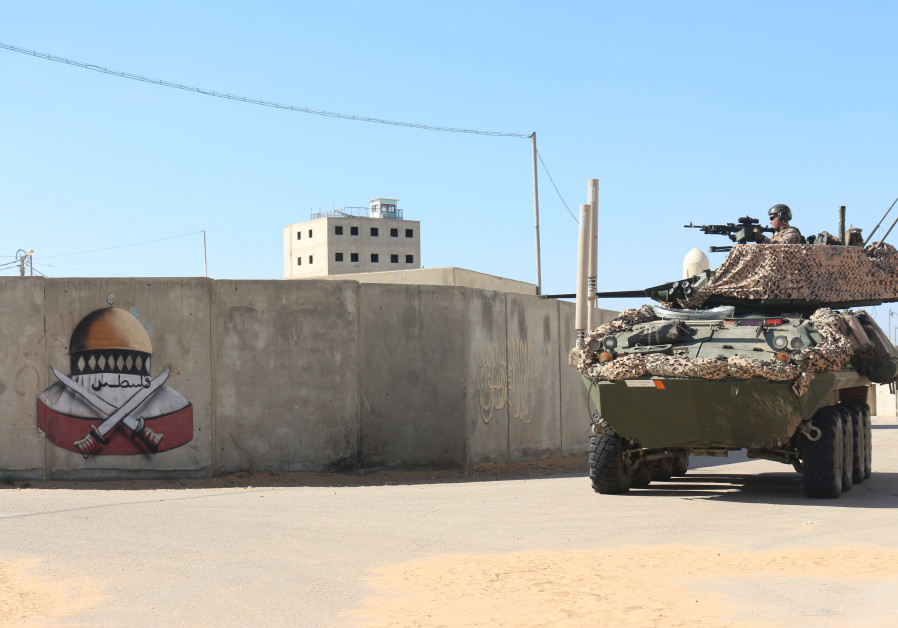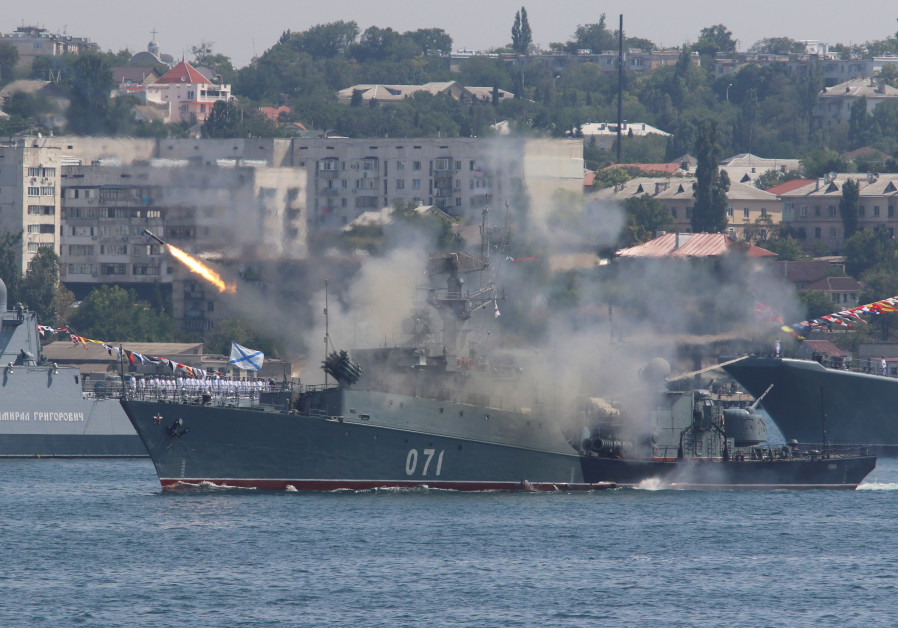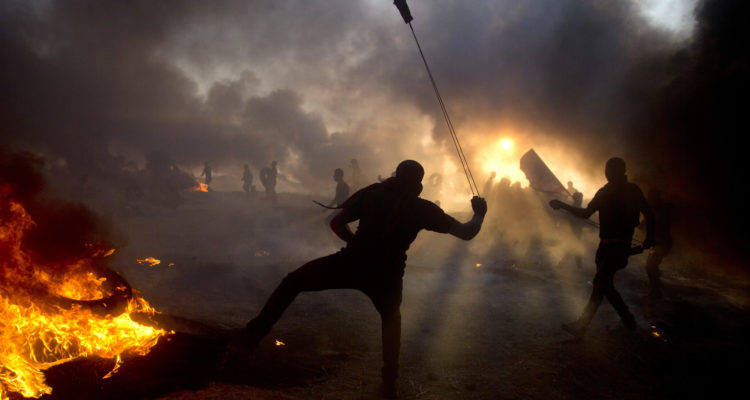Σάββατο Πρωϊ!..
1.
11-29-18
Iranian airline now ferrying weapons directly to Beirut
According to reports, a 747 registered as EP-FAB, took off this morning at 8:02 am from Tehran to Beirut on flight QFZ9964 and landed in Lebanon at 10:19 am.
The plane was operated by “Fars Air Qeshm”, an aviation company owned by Iran’s Revolutionary Guard Corps to ferry weapons to Hezbollah. According to the website “Intelli Times“, the plane carried equipment to convert Hezbollah’s rocket arsenal to precision missiles capable of hitting sensitive sites within Israel.
Iran s “Fars Air Qeshm” airline has long been accused of flying arms for the “Islamic Revolutionary Guard Corps” (IRGC) and the elite Quds force led by Iranian Gen. Qassem Soleiman. Last year, the Trump administration imposed sanctions on the IRGC and Quds force.
The airline had ceased operations in 2013, citing poor management, but restarted under new management in March 2017. It is said to have two Boeing 747s in its fleet. Among the members of the company s board are three IRGC representatives, named in the report as Ali Naghi Gol Parsta, Hamid Reza Pahlvani and Gholamreza Qhasemi.
While Iran has invested considerable efforts to transfer advanced missiles to Hezbollah, it commonly flies from the Islamic Republic to Syrian air force bases, making the flight path highly irregular.
Western intelligence has already tracked two similar flights within the past few months. In September, “Fox News” reported that a Boeing 747 that departed from an air force base in Tehran, stopped for a short layover at the international airport in Damascus, Syria, and then continued with a rather uncharacteristic flight path to the Beirut international airport, where it landed shortly after 4:00 p.m. local time.
According to flight data obtained by “Fox News”, the route passed over northern Lebanon, not following any commonly used flight path.
A regional intelligence source who asked to remain anonymous told the news network, “The Iranians are trying to come up with new ways and routes to smuggle weapons from Iran to its allies in the Middle East, testing and defying the West s abilities to track them down.
Western intelligence sources said the airplane carried components for manufacturing precise weapons in Iranian factories inside Lebanon. The U.S. and Israel, as well as other western intelligence agencies, have supplied evidence that Iran has operated weapons factories in Lebanon, Syria and Yemen.
The Iranian-backed Lebanese Hezbollah has been building factories in the heart of Beirut to convert missiles into highly-accurate precision weapons capable of striking sensitive Israeli sites. Upon deciding to convert its massive 150,000-strong rocket arsenal to missiles with pinpoint accuracy, Hezbollah chose to transfer its sites to the heart of Beirut in order to deter Israeli airstrikes.
Israel has repeatedly reiterated that it will not allow Hezbollah to obtain highly accurate missiles that would threaten sensitive Israelis sites and has been escalating its threats vis a vis Lebanon.
Hezbollah currently possesses over 150,000 thousand missiles, more than most NATO countries. Senior defense officials have said repeatedly that Hezbollah is now Israel’s major threat and predict that hundreds of Israelis will die in the next war between the two sides.
2.
Report: Trump Plans to Push Forward With Space Force
29 November
Citing a draft presidential directive, Politico reported the first details about the new military service indicate Trump, who has championed the standalone “Space Force”, is still interested in pursuing an entirely new branch, despite criticism on Capitol Hill and even initially, the Pentagon.
“Under this proposal, the “Space Force” will organize, train, and equip national security space forces of the United States to ensure unfettered access to and freedom to operate in space, and to provide vital capabilities . . . in peacetime and across the spectrum of conflict,” the draft directive says, Politico reported.
The new branch would draw troops from across the military, including the National Guard and Reserves, and be responsible for overseeing the acquisition of all space technologies and weapons, including a new Space Development Agency, Politico reported.
An unnamed senior defense official told Politico the proposal is designed to be scaled up or down in size, depending on what option the administration feels could clear Congress.
No matter which option is chosen, the new organization is likely to be called “Space Force, according to an Oct. 26 White House memo to the Pentagon, Defense One reported.
3. ”New Russian missile undermines European security”
– Op-ed by NATO Secretary General Jens Stoltenberg
29 Nov. 2018
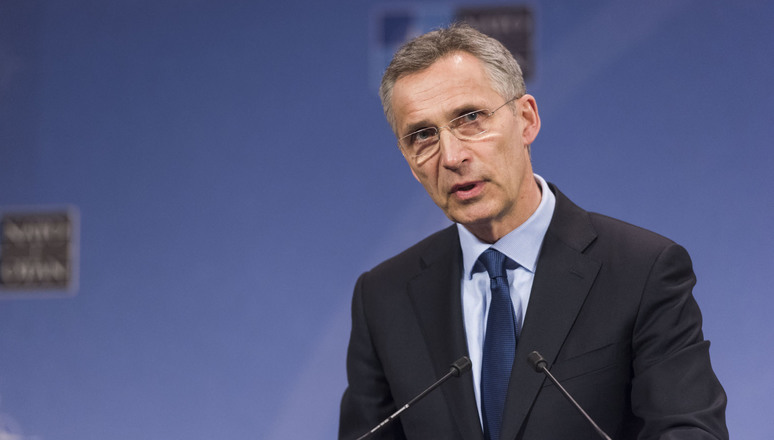
I belong to a generation shaped by the debate on intermediate range nuclear forces in Europe during the 1970s and 80s. The destructive power of SS20, Pershing and cruise missiles were of profound concern for publics and politicians alike. These weapons were specifically designed for the near-instant destruction of the European continent, and threatened the lives of millions of people.
The whole continent – indeed the whole world – breathed a sigh of relief when the “INF Treaty” was signed in 1987 by Ronald Regan and Mikhail Gorbachev. Not only did the treaty reduce the number of nuclear missiles, it banned an entire category of weapons, making us all much safer.
But in the last years, Russia has developed, produced, tested and deployed a new intermediate range missile, known as the SSC-8. The SSC-8 is mobile and easy to hide. It is capable of carrying nuclear warheads. It reduces warning times to minutes, lowering the threshold for nuclear conflict. And it can reach European capitals.
Russia’s actions undermine the INF Treaty, placing it in serious jeopardy. The United States is in full compliance with its obligations under the INF Treaty. There are no new US missiles in Europe, but there are new Russian missiles.
A treaty that is respected by only one side cannot be effective and will not keep us safe. If a treaty no longer affects the reality on the ground, then it is nothing more than a piece of paper.
NATO Allies first raised their concerns five years ago, under the Obama administration. Now, after many years of categorical denials, Russia admits the existence of this new missile system.
NATO Allies have repeatedly urged Russia to address our concerns in a substantial and transparent way, and to actively engage in a constructive dialogue with the United States. We repeated that call at our Summit in July, and when we met in the NATO-Russia Council at NATO headquarters in October.
Regrettably, Russia has not heeded our calls. Moscow’s lack of engagement only reinforces our assessment that the new missile system poses a serious risk to the strategic stability of Europe. So I again urge Russia to ensure full compliance with the INF Treaty with full transparency – and without delay.
NATO has no intention to deploy new nuclear missiles in Europe N. But as an Alliance, we are committed to the safety and the security of all our nations. We must not allow arms control treaties to be violated with impunity, because that undermines the trust in arms control in general.
The onus is on Russia. NATO does not want a new Cold War or a new arms race, and we will do all we can to avoid them. But Russia too must play its part. We remain ready to talk with Russia and to work together towards a better and more secure future.
However, NATO must be firm and predictable. If we want to avoid nuclear weapons, we need to make sure that our conventional deterrence and defence is strong. That is why, in response to Russia’s illegal annexation of Crimea in 2014 and the country’s ongoing pattern of aggressive behaviour, NATO Allies strengthened our collective defence, agreeing to increase our investment in defence and to further modernise our armed forces.
At the meeting of NATO foreign ministers in early December, we will assess the implications of Russia’s actions for the INF Treaty and for our Alliance. North America and Europe will continue to stand together in NATO to ensure peace and security.
4. Cyber Coalition helps prepare NATO for today’s threats
- 27 Nov. 2018
- NATO’s flagship cyber defence exercise “Cyber Coalition”, one of the largest in the world, started on Tuesday (27 November 2018) in Tartu, Estonia. The exercise tests and trains cyber defenders from across the Alliance in their ability to defend NATO and national networks. Now in its eleventh year, Cyber Coalition involves around 700 participants from Allies, partners, industry and academia.
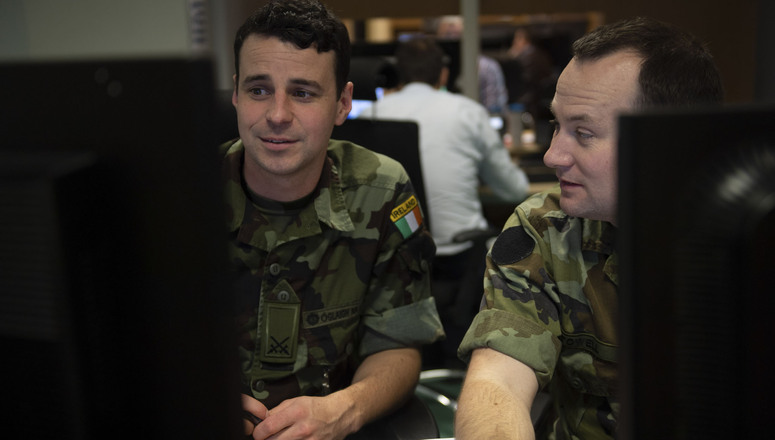
The exercise aims to enhance coordination and collaboration between NATO and Allies, strengthen the ability to protect Alliance cyberspace, and conduct military operations in the cyber domain. It will also test NATO and national procedures on information sharing, situational awareness in cyberspace, and decision-making.
Cyber threats to the Alliance are becoming more frequent, complex and destructive. A cyber-attack on one Ally can affect all of us. That is why strengthening cyber defence is a top priority for the Alliance, and exercises like Cyber Coalition are essential for building up this defence.
At the NATO Summit in July 2018, Allies took the next steps in strengthening defences in the cyber domain, with a new “Cyberspace Operations Centre“ and the ability to draw on Allies’ cyber capabilities in NATO missions and operations. These steps will all help make NATO as strong in cyberspace as on land, at sea and in the air.
5. WHY IS THE U.S. IN THE MIDDLE EAST?
Jerusalem wants to see the US engaged, influential and active in the region. It doesn’t want to see it disengaged and concerned only about its own domestic problems.
In the run-up to the 2016 US presidential campaign, one concern heard in Jerusalem about then-candidate Donald Trump was that his “America First” policy contained the seeds of isolationism. And American isolationism is not good for Israel.
Since his election, however, those concerns were largely put to rest, as Trump took a number of steps that have been extremely good for Israel.
The concerns about isolationism were largely put to rest, but not completely buried, and interviews such as the one Trump gave Tuesday to “The Washington Post”, where he discussed why the US is in the Mideast, have a tendency to bring them back to the surface.
Asked about whether sanctions should be imposed on Saudi Arabia for the killing of journalist Jamal Khashoggi in Turkey, Trump said, “I just feel that it’s very, very important to maintain that relationship [with Riyadh].
“It’s very important to have Saudi Arabia as an ally, if we’re going to stay in that part of the world. Now, are we going to stay in that part of the world? One reason to is Israel.
Oil is becoming less and less of a reason, because we’re producing more oil now than we’ve ever produced. So, you know, all of a sudden it gets to a point where you don’t have to stay there.”
There were two elements in that short answer that were problematic from a traditional Israeli point of view.
The first is his argument that Israel is the reason the US is in the Middle East.
The last thing Israel wants the average American to think is that US troops in the Middle East are risking their lives – and at times losing them – to protect Israel.


